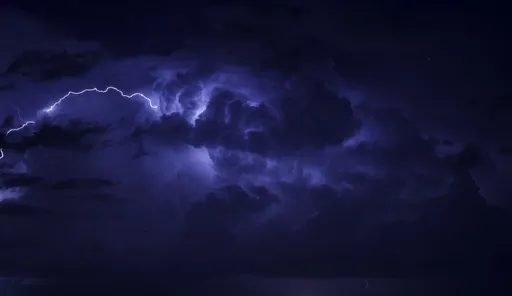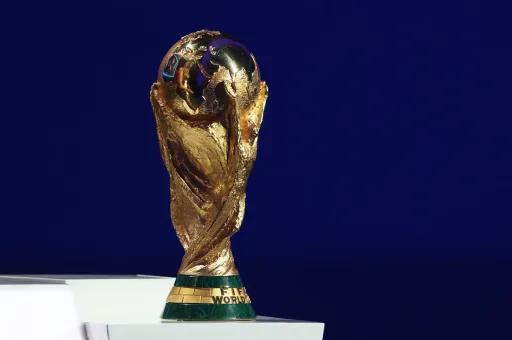By Dr Mahjoob Zweiri
On Tuesday, Iran launched a missile attack on Israel, targeting military installments in an operation called "True Promise 2."
The first "True Promise" took place in April, after Israel attacked the Iranian consulate in Damascus.
The United States said this week's attack was "nearly twice the scope" of what happened in April., after Iran launched nearly 200 ballistic missiles on different cities and air bases across Israel.
Following the assault, Iran warned that if Israel decided to retaliate, Iran would destroy all Israeli infrastructure. Iran has justified the attack by saying that Israel has been threatening its own security, politics and stability in the last year.
Netanyahu's goals
The assassination of Hezbollah leader Hassan Nasrallah and other political and military officials who were part of Iran's leadership suggests that Israel is trying to destroy Iran's network in the Middle East.
'Iran made a big mistake tonight - and it will pay for it,' Israeli Prime Minister,' Benjamin Netanyahu said at the outset of a political-security meeting, after Iran fired ballistic missiles at Israel, raising fears of a wider war https://t.co/KfYd6Bdm7jpic.twitter.com/aKFsFwQTfd
Additionally, Israel's aggressive attacks on Hezbollah bases in southern Lebanon and recent invasion of the country send a clear message: after destroying Gaza and failing to achieve his goal of eradicating Hamas, Prime Minister Benjamin Netanyahu has decided to extend the war to Hezbollah. And the third stage after going after Hezbollah is to attack Iran.
Iran's establishment seems to be well aware of Netanyahu's three-pronged strategy. Therefore it must have attacked Israel to challenge this plan, which aimed to reshape the Middle East, as Netanyahu claimed after Nasrallah's assassination.
Tuesday's attacks targeted military bases, but Iran's message was if any counter-action was taken by the Israeli government, there would be a strong response. Iran also sent a clear message to allies of Israel, that if Tel Aviv receives any kind of military support to harm Iran, Tehran would also retaliate against those countries - a message aimed at the United States in particular.
Iran threat
The million-dollar question now is: what will the response from Israel be? To answer this, it's important to remember that over the past 20 years, Netanyahu has considered Iran to be a core threat to his political and security strategy in the Middle East.
This threat perception has been shaped by Iran's refusal to recognise Israel, its decision to support resistance movements, and challenging Israeli military capabilities by developing ballistic missile and nuclear programs.
Potential conflict with Iran spurred Netanyahu to negotiate the Abraham Accords in 2020, which entailed forging agreements with the United Arab Emirates and Bahrain. Additionally, Netanyahu tried to scuttle the outcome of the 1991 Madrid peace conference and the 1993 Oslo process.
He also tried to dissolve the United Nations Relief and Works Agency for Palestine Refugees (UNRWA) project. And in an effort to limit Iran's role in the Middle East, Netanyahu has been working to scuttle the power and influence of Hamas and Hezbollah in Gaza and southern Lebanon.
Based on the above efforts, it's unlikely that Israel will refrain from responding to Iran's attacks. So maybe the question should be, what could be the nature of that response?
Israel's strategy
Israel will likely try to pursue two primary targets in Iran that could provide Tel Aviv with the legitimacy and support of the United States and other European countries, and those targets are Iran's ballistic missile bases and the nuclear facilities.
Incredible Bloomberg data visualization that clearly shows what’s actually going on between Israel and Lebanon. First, despite all the talk of the threat of Hezbollah rockets hitting Israel, it’s actually Israel that’s consistently firing far more rockets over the border. pic.twitter.com/uSvPvMC61i
If this scenario happens, Iran will also likely respond. And based on its attack on Israel this week, Tehran has surely considered a retaliation scenario and fortified security for such targets.
In addition, Netanyahu will likely target individuals and politicians linked to Iran or maybe from Iran itself. This will provide quick psychological support to the Israeli public, allowing Netanyahu to regain some of the political capital he's lost by not rescuing so many of the hostages.
Whatever its strategy, Israel's response could open a new chapter of conflict in the Middle East. That said, the United States will likely try to avoid a direct intervention before its elections, which will take place on November 5.
To conclude, although Israel and the US claim that Iran's attack failed this week, such an attitude is expected to undermine any claim of victory that may be made by Iran and its allies.
The attack itself has challenged Netanyahu's strategy of targeting Iran after the ground incursion in southern Lebanon. This kind of attack will likely open the region to more uncertainty of politics and security and vicious circle attacks and counterattacks in the Middle East.
The author, Dr Mahjoob Zweiri is a professor in Middle East Politics and expert in Iran at Qatar University.
Disclaimer: The views expressed by the author do not necessarily reflect the opinions, viewpoints and editorial policies of TRT Afrika.
➤ Click here to follow our WhatsApp channel for more stories.
























